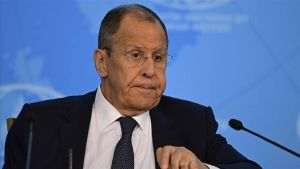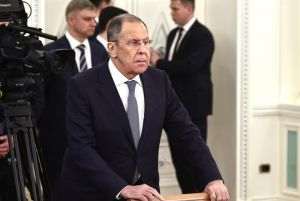What does Romania expect from its relationship with China, now at the turn of the century? That's the inevitable question these days, as Bucharest hosts the leader of the only superpower which hasn't yet reached its pinnacle.
There was a palpable transformation after 1990, concerning the relationship between Romania and China. Unfortunately, these changes do not favor us. Why? Because of an absence of a strategic approach.
Fearing that too much focus on our relations with China might shadow our options to join the EU and NATO, Romania's diplomats made a strange choice: the bureaucratic solution of minimal resistance ("don't do it today, leave it for tomorrow, maybe you won't have to do it at all!"). This choice was also supported by something else: the ideological component of the Sino-Romanian relations starting in the seventies (the main one, actually) is now completely empty. It should have been replaced with another "philosophy" or - even better - with a robust pragmatism. Actually, Chinese diplomacy sent strong signals to Bucharest, after 1990, showing its willingness to pursue the pragmatic approach. China is still interested by a consistent relationship with Romania, not for short-term interests, but for our peculiar (although uncomfortable) position vis-à-vis the great power centers: Europe, Russia, and the United States. In order to support this relationship, China provided opportunities of economic exchanges (provided that Romanian products might face competition on the Chinese market). Of course, no one expected Romania to compete on the satellite market, but it used to hold a few niches it might have developed. Not only was Romania unable to do it, but it ruined the entire structure of bilateral economic relations. Finally, the Romanian counterpart did nothing more than to request financial support in times of crisis and to (generally) invite Chinese entrepreneurs to come to the Romanian market ("thirsty for investments"). The Chinese know better than all of us about the results of "State capitalism", so they kept their political good will, but on the economic side they minded their own businesses, much more importantly.
This is the platform that underpins the high level diplomatic relations between the two countries, without much change of substance.
Which is the situation now, when President Hu Jintao is in Bucharest?
The same! It is good to hear about the Chinese financing for the bridge over the Danube, but this won't change much. A country whose president goes to France (as happened earlier this year) in order to sign a contract for 120 Airbus aircrafts, cannot be wrong concerning the relevance of investing in some bridge - be it over the Danube!
There is nothing new also within the message delivered by President Hu Jintao in Bucharest, which shows that - from the Chinese diplomacy standpoint - the game must be played by the Romanian counterpart. Principles quoted as the basis for further development of the bilateral relations are: "trust and reciprocal benefit", "equality and coordination" and "shared security for all states". In a non-diplomatic translation, the first speaks of the solid pragmatism we already mentioned, the second of Beijing's availability to keep providing opportunities for Romania, in exchange for political coordination, and the third is a discrete arrow targeting the "American unilateralism" supported by Bucharest without reserves, especially during the Iraqi crisis.
What can be built for the future? Almost everything - or nothing!
China reached a privileged position (both economic and political) in the international system, as arbiter of the great competition lines: between the US and the EU, between Europe and Russia, between Russia and the US. Not only for countries such as Germany or France is China the main expansion market, but also for the United States. The economic consequences of relations with China are so important that no one can any longer make politics just for the sake of principles. There is a single priority on the Chinese agenda - to keep the same status for Taiwan. This implies acknowledgement of Taiwan as part of China. Any movement towards strengthening its independent status is perceived by China as adversary action, aiming to damage it. This is the only topic stressed by China in its relations with all strategic partners - and all of them (from Brussels to Washington) complied. All the world's power centers have chosen the "realistic", pragmatic approach proposed by China, not the one based on "rigid ideals and principles". That's why, during the whole European visit of President Hu Jintao, no one - except for some newspapers and NGOs - even reminded us of Tien An Men, 15 years ago.
Within the new constellation of international power, China is some kind of Jupiter: huge, but of low density still. But its power to influence the planetary system (meaning the Power) is significant however - although, for the time being, it becomes manifest mainly in indirect ways.


















































